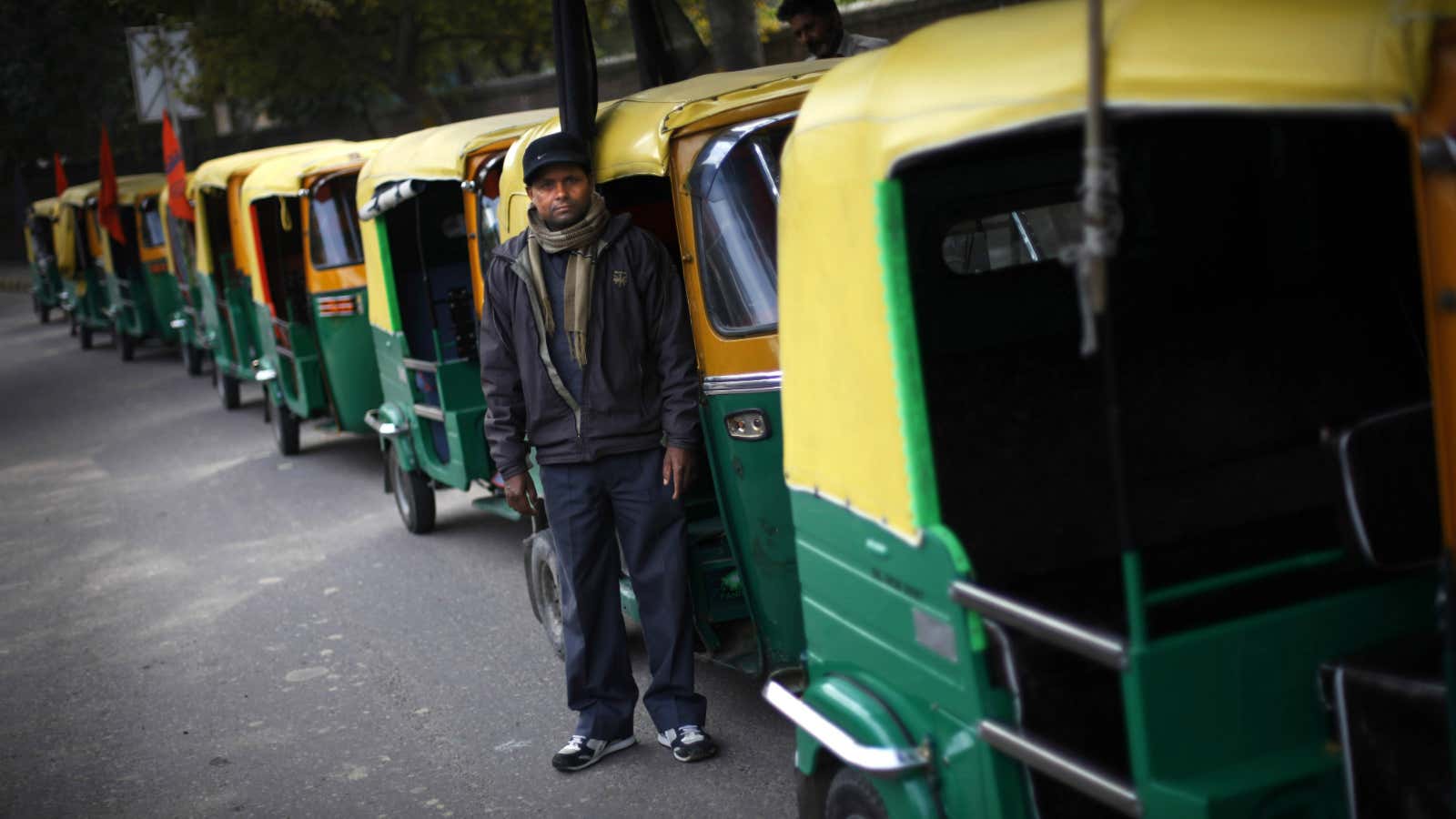This post has been corrected.
Uber has quietly closed down the service of uberAUTO in New Delhi, about seven months after its launch.
“We are temporarily removing this product (uberAUTO) to solve specific problems that need to be resolved to help it scale,” a spokesperson for Uber told Quartz. The company shut down the platform about two weeks ago, and did not provide any specific timeline for relaunching the service.
uberAUTO—the first platform for a mode of transport other than the four-wheeled taxis by the Silicon Valley startup—is one of the many country-specific features that Uber had added to its app to win the intensifying taxi war in India. The three-wheelers are a cheap and popular mode of transportation in many Indian cities, including New Delhi, and a number of taxi aggregators have sought to integrate them into their platforms.
When launched in April this year, it marked the first time that Uber had tweaked its global business model to accept cash as a payment mode. The company had also planned to subsequently expand the auto-rickshaw service to adjoining areas of Delhi.
“The feedback from both riders and drivers has been tremendous,” an Uber spokesperson had told Quartz in June this year. “In fact many riders have become avid Uber riders because they got introduced to Uber because of uberAUTO and now use the other products as well, and really like the cashless experience Uber provides.”
Despite claiming to get a good feedback in Delhi, Uber eventually did not expand its auto-rickshaw aggregation experiment into any other Indian city.
Uber did not share the number of auto-rickshaws that were registered with its platform, but competitor Ola said it operates 16,000 auto-rickshaws in Delhi alone.
“Ola has more than 70,000 autos attached to its platform across Delhi, Bengaluru, Chennai, Ahmedabad, Pune and Hyderabad,” a spokesperson for Ola told Quartz. The company will soon extend the service to three new cities in India by the end of the year, the spokesperson added.
Changing dynamics?
The reasons for discontinuing the auto-rickshaw service aren’t entirely clear, but could have been to do with the business’ far lower margins and transaction size compared to taxis. In India, many choose to hail auto-rickshaws off the road, instead of using apps to book them.
Uber’s move to discontinue autos also comes at a time when the company raised fresh investment from Tiger Global—the investment firm that has been so far backing the company’s competitors in Asia, including Ola in India.
On Dec. 3, Bloomberg reported that Uber has closed investments from Tiger Global Management and T. Rowe Price, and is on the look out for more investors with shared business interests. The company plans to raise as much as $2.1 billion in the latest round of funding, valuing it at $62.5 billion.
At the same time, Ola announced a partnership with three of Uber’s biggest rivals—China’s Didi Kuaidi, US-based Lyft and South Asia-based GrabTaxi—to allow users to book cabs from each others apps in all the regions where they operate. Didi Kuaidi was also part of a group of investors who pumped in $500 million into Ola in November this year.
Correction: An earlier version of this post incorrectly stated that Tiger Global is a hedge fund. The firm has clarified that it invests in startups like Uber and Ola through its private equity group.
